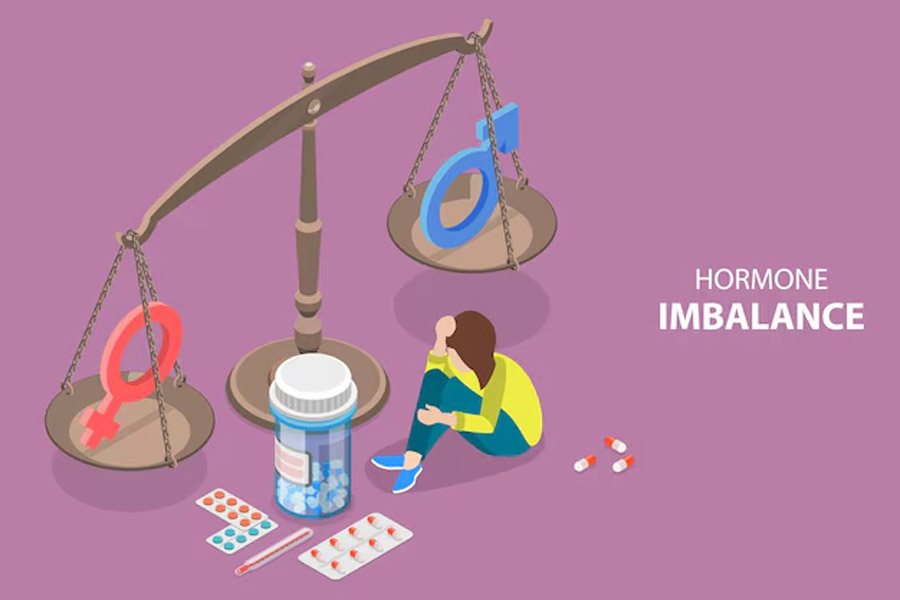
PCOS (Polycystic Ovary Syndrome) is a prevalent condition characterised by the formation of small cysts on the ovaries, which can disrupt ovulation, impact menstrual cycles, and affect fertility. Individuals with PCOS frequently experience insulin resistance, meaning their bodies produce insulin, a hormone essential for regulating blood sugar, but cannot utilise it effectively.
As a result, many are concerned about the potential link between PCOS and diabetes. To explore this connection, we spoke with Dr. Tripti Sharan, Director, Obstetrics and Gynaecology at BLK-Max Super Speciality Hospital, who provided valuable insights into how PCOS may elevate the risk of developing diabetes.
Dr Tripti explained that polycystic ovaries refer to ovaries that are not functioning properly, with follicles halted at different stages of ovulation, giving them a polycystic appearance. She emphasised that the ovaries themselves are not the root cause but rather a victim of the underlying condition, which in most cases is linked to insulin resistance or hypothyroidism.
She further elaborated, stating, "Insulin resistance is primarily caused by genetic factors, obesity, and an unhealthy lifestyle. The body tries to maintain normal blood sugar levels by increasing insulin production. However, this excess insulin affects the ovaries, leading to a polycystic state." Under the influence of elevated insulin levels, the ovaries begin to produce more male hormones than female ones, resulting in irregular menstrual cycles, acne, abnormal hair growth, and sometimes infertility.

If the contributing factors remain unaddressed, insulin resistance worsens, and the body's ability to regulate blood sugar with high insulin levels eventually fails, potentially leading to the onset of diabetes.
Don't Miss: Expert Insights On Health Benefits of Pumpkin Seeds And How It Can Boost Your Health
Dr. Tripti highlights that PCOD (Polycystic Ovarian Disease) is often seen as a pre-diabetic condition, and if not managed through lifestyle changes, it can lead to the development of diabetes. She emphasises that weight control, a healthy diet, stress reduction, and maintaining a regulated lifestyle are crucial for managing PCOD effectively.
In addition to the risk of diabetes, Dr. Tripti notes that PCOD is associated with other health issues such as elevated triglycerides, fatty liver, endometrial hyperplasia, and high blood pressure. Factors like obesity, lack of physical activity, a stressful lifestyle, increased bad cholesterol, pregnancy, ageing, smoking, vitamin D deficiency, and steroid misuse can all accelerate the onset of diabetes in individuals with PCOD.
Specific Symptoms In PCOS That Indicate A Higher Risk Of Developing Diabetes?
Dr. Tripti stated, "Inadequate weight control, fatty liver, elevated lipid levels, and signs of hormonal imbalance, such as excess androgens, can all signal worsening insulin resistance. This increased resistance heightens the risk of developing diabetes mellitus."
Don't Miss: Can Your Diet Worsen Your PCOS Symptoms? Expert Weighs In
Dr Tripti recommends several preventive measures to lower the risk of diabetes, including:

Dr Tripti advises that managing both PCOS and the risk of diabetes involves adopting a balanced diet and an active lifestyle. She recommends increasing fibre intake and consuming plenty of fruits and vegetables, particularly those with skins, as they have a lower glycaemic load.
It’s also important to maintain adequate levels of calcium and vitamin D. For exercise, cardio, strength training, stretching, and relaxation are ideal, with yoga and meditation being especially beneficial. Additionally, avoiding smoking and limiting alcohol consumption is crucial for overall health and reducing risks.
Keep reading Herzindagi for more such stories.
Credits: Freepik
Herzindagi video
Our aim is to provide accurate, safe and expert verified information through our articles and social media handles. The remedies, advice and tips mentioned here are for general information only. Please consult your expert before trying any kind of health, beauty, life hacks or astrology related tips. For any feedback or complaint, contact us at [email protected].